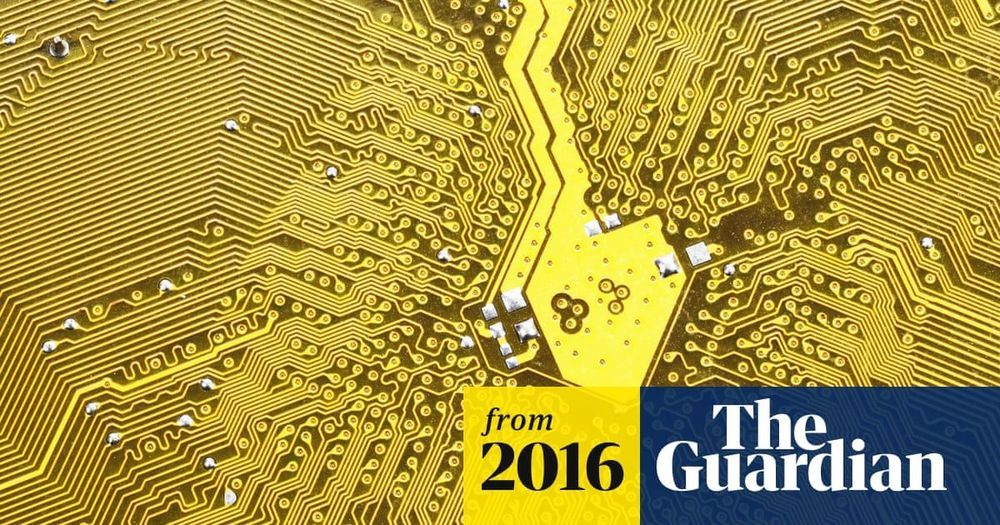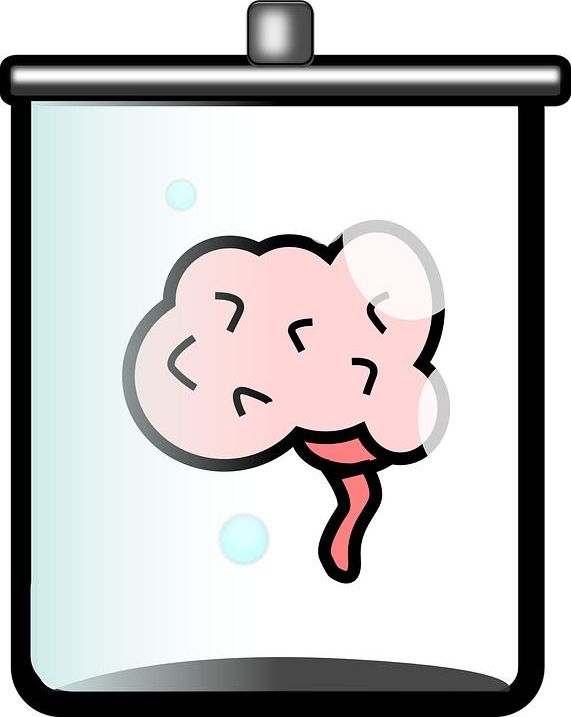Circa 2016
In a sign of the autonomous security of the future, a $2m contest wants teams to build a system that can exploit rivals’ vulnerabilities while fixing its own.

Circa 2015
A researcher at Ransselaer Polytechnic Institute in the US has given three Nao robots an updated version of the classic ‘wise men puzzle’ self-awareness test… and one of them has managed to pass.
In the classic test, a hypothetical King calls forward the three wisest men in the country and puts either a white or a blue hat on their heads. They can all see each other’s hats, but not their own, and they’re not allowed to talk to each other. The King promises that at least one of them is wearing a blue hat, and that the contest is fair, meaning that none of them have access to any information that the others don’t. Whoever is smart enough to work out which colour hat they’re wearing using that limited information will become the King’s new advisor.
In this updated AI version, the robots are each given a ‘pill’ (which is actually a tap on the head, because, you know, robots can’t swallow). Two of the pills will render the robots silent, and one is a placebo. The tester, Selmer Bringsjord, chair of Rensselaer’s cognitive science department, then asks the robots which pill they received.


Could automatically find the coronavirus vaccine.
We research and build safe AI systems that learn how to solve problems and advance scientific discovery for all. Explore our work: deepmind.com/research


For example, less than an hour after CNBC first reported Gerstenmaier’s hiring, the head of Russian state space corporation Roscosmos, Dmitry Rogozin, tweeted his congratulations: “I wish my friend success in his new job!”
In his new position, Gerstenmaier is reporting to Hans Koenigsmann, the vice president of mission assurance at SpaceX. Although the role is officially a consultancy, it is expected to become a full-time position. SpaceX is poised to launch the first crewed mission of its Dragon spacecraft by June of this year. Gerstenmaier will play a key role in ensuring the safety of those missions and helping SpaceX secure certification for the Crew Dragon vehicle.
The hiring could have longer-term implications as well. Few people in the global aerospace community have as much gravitas as Gerstenmaier or as much understanding of how to build coalitions to explore space. As SpaceX seeks partners—including NASA—to work with it on developing Starship to take humans to the Moon and Mars, Gerstenmaier is well-positioned to offer advice, stitch together mission plans, and open key doors.


Wow… hmmm.
Scientists at Sanford Burnham Prebys Medical Discovery Institute have shown that two prebiotics, mucin and inulin, slowed the growth of melanoma in mice by boosting the immune system’s ability to fight cancer. In contrast to probiotics, which are live bacterial strains, prebiotics are “food” for bacteria and stimulate the growth of diverse beneficial populations. The study, published today in Cell Reports, provides further evidence that gut microbes have a role in shaping the immune response to cancer, and supports efforts to target the gut microbiome to enhance the efficacy of cancer therapy.
The research specifically opens new avenues to address important unmet clinical needs in melanoma, as it highlights the possible impact of prebiotics on tumor growth control and therapy resistance.
“Earlier studies have demonstrated that prebiotics limit tumor growth, but until now the mechanism by which they do so has been unclear,” says Ze’ev Ronai, Ph.D., professor in Sanford Burnham Prebys’ Tumor Initiation and Maintenance Program and senior author of the study. “Our study shows for the first time that prebiotics limit cancer growth by enhancing anti-tumor immunity. The study supports further exploration of the potential benefits of prebiotics in treating cancer or augmenting current therapies.”
Congratulations to Osinakachi Gabriel for his launch of the first publication the TAFFD’s “Magazine of the Future” — Also thanks for the Bioquark (page 37) and Regenerage (page 72) profiles — https://issuu.com/taffds/docs/taffd_s_magazine_2019 #Futurism #Longevity #Transhumanism #Biotechnology #Health #Wellness #Regeneration #LifeExtension #Aging #Immortality #IraPastor #Bioquark #Regenerage #Ideaxme #Singularity #Consciousness #AI #JasonSilva #ArtificiaIIntelligence #SENS
In this first issue by Trandisciplinary Agora For Future Discussions, we approach reality from a transdisciplinary perspective in order to find unity and greater understanding of the world as we enter a new paradigm in technological advancements that will lead us to transcending our own biology while enhancing our mental and physical limitations. We explore all topics that relate to transhumanism, cybernetic singularity, energy, consciousness, international policy, electromagnetic forces, language, AI, digitalization, ethics, philosophy, biotechnology, futurism and more.

A Yale University experiment, led by neuroscientist Nenad Sestanwhich reawakened the brains of slaughtered pigs has raised speculation that human trials could be next, renewing ethical concerns over the pursuit of immortality. In the experiments, the pigs did not regain consciousness but Sestan acknowledged that restoring awareness is a possibility and that the technique could work on humans, keeping the brain alive indefinitely.
Nottingham Trent University ethics researcher Benjamin Curtis says ending up as a disembodied brain might just be a “living hell.” Writing in The Conversation he suggested that living without any actual contact with reality could be a fate worse than death. “Some have argued that even with a fully functional body, immortality would be tedious. With absolutely no contact with external reality, it might just be a living hell,” Curtis wrote.
Curtis explained that the brain is highly integrated with the rest of the body in both humans and animals. It is constantly receiving and sending signals from and to it. “We have no idea what experiences would occur within a disembodied brain. But those experiences may well be deeply disturbing,” he said.